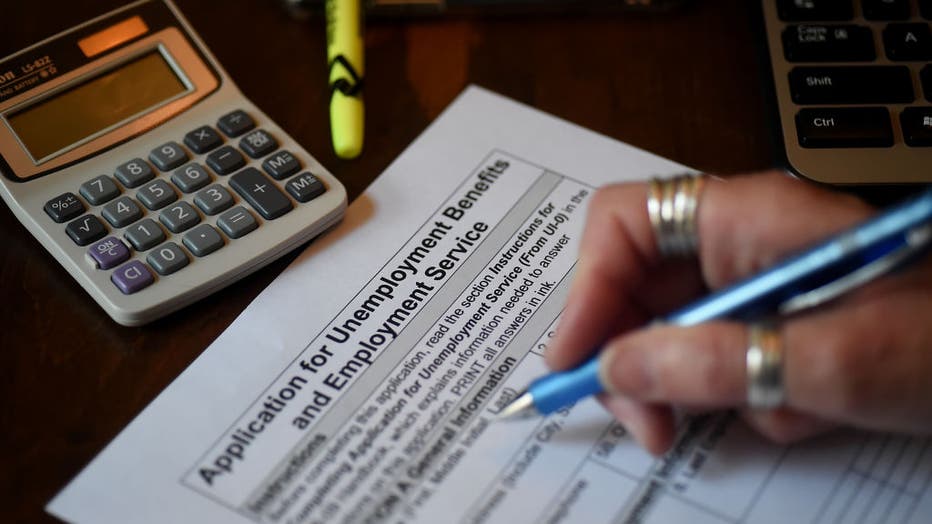Number of Americans filing for unemployment falls below 1M for first time since pandemic started
WASHINGTON - The number of laid-off Americans applying for unemployment benefits fell below 1 million last week for the first time since the coronavirus pandemic started in mid-March.
The latest jobless claims figures from the Labor Department, which cover the week ending August 8, show that 963,000 workers sought aid last week, pushing the total number since the shutdown began to nearly 56 million.
Economists surveyed by Refinitiv expected 1.12 million new claims. Last week's total was revised up by 5,000 to 1.186 million.
The figure — the lowest since March 21, just as the pandemic brought the economy to a grinding halt — indicates there's still driving power behind the job market's recovery, despite fears that a flare-up in COVID-19 cases and a fresh round of business closures would derail its early recovery.
It marks the first time in 20 weeks that jobless claims came in below 1 million; before the pandemic, the record high was 695,000, set in 1982. The last time the number was below 1 million was March 14, when just 282,000 Americans filed for aid.
Continuing claims, the number of people receiving benefits after an initial week of aid fell by 604,000 to 15.48 million.
There are other signs the battered labor market is starting to make a turnaround: Employers added 1.8 million jobs in July, the third consecutive month of job growth above 1 million. The jobless rate fell to 10.2% last month. Still, there are about 10 million more unemployed Americans than there were in February.
"Seeing initial claims dip below 1 million is a positive sign that layoffs are easing, but we’re far from celebrating a steady recovery," said Daniel Zhao, senior economist at Glassdoor. "Tens of millions of people are still collecting unemployment benefits at a level far above the worst points of the Great Recession. We’ve not yet seen the light at the end of the tunnel for millions of workers."

In this photo illustration, a person files an application for unemployment benefits on April 16, 2020, in Arlington, Virginia. (Photo by OLIVIER DOULIERY/AFP via Getty Images)
For months, unemployed Americans had been receiving a supplemental $600 a week in benefits, part of the $2.2 relief package that Congress passed at the end of March. But that aid expired at the end of July, leaving the average laid-off worker with a weekly unemployment check of $330.
Although Democrats and Republicans broadly agree that another stimulus package is needed, a stalemate over a deal appears likely to drag on for weeks, possibly into September. White House officials and Democrat leaders indicated on Wednesday they were nowhere close to reaching an agreement, despite weeks of closed-door discussions, with each side continuing to blame the other for the stalemate.
Negotiators are trying to bridge the gulf between a $1 trillion aid package put forward by Senate Republicans at the end of July, and the roughly $3 trillion legislation passed by House Democrats in May. The Trump administration rejected an offer by Pelosi last week to meet in the middle on a $2 trillion price tag.
On Saturday, President Trump bypassed Congress with a series of executive actions, including one measure that would partially restore extra unemployment benefits.
The memo expands unemployment benefits by $400 per week, with states chipping in $100. However, most states have said they're unable to foot the bill, citing virus-induced budget shortfalls. That could mean the aid is reduced to $300 a week for some unemployed Americans — half of what they were previously receiving.
Treasury Secretary Steven Mnuchin said Monday that he expects most states to start administering the extra benefit within a couple of weeks. The money will be retroactive to Aug. 1.
Get updates on this story from foxbusiness.com.

